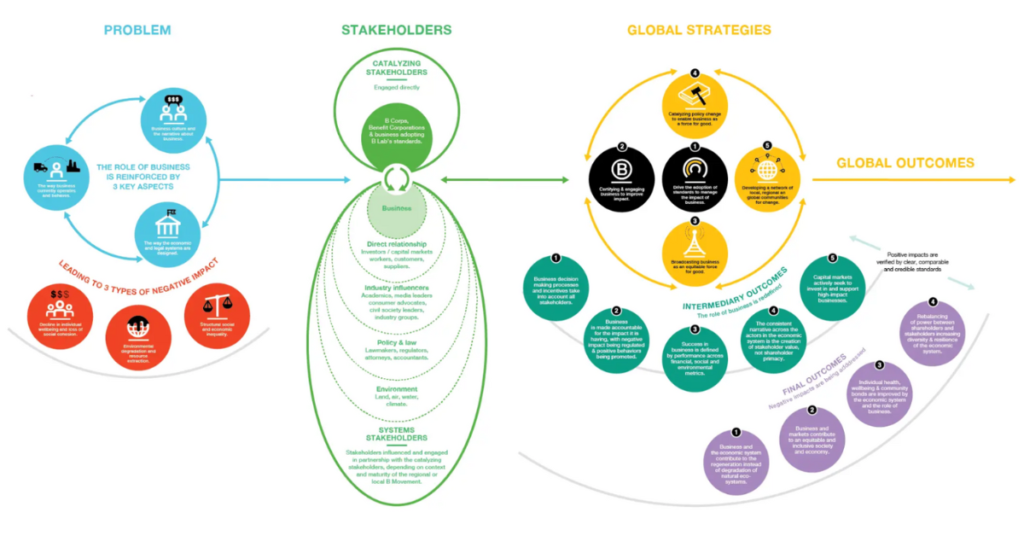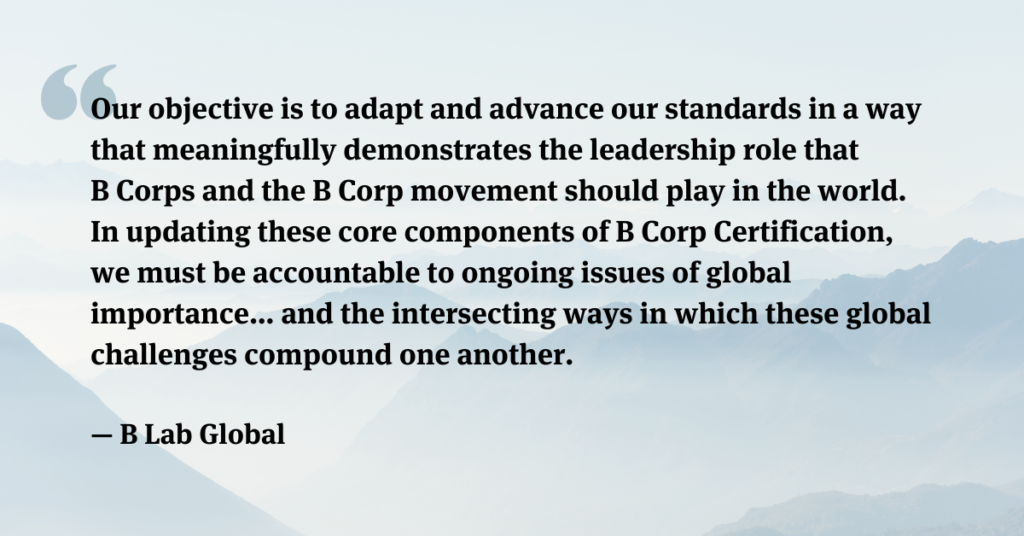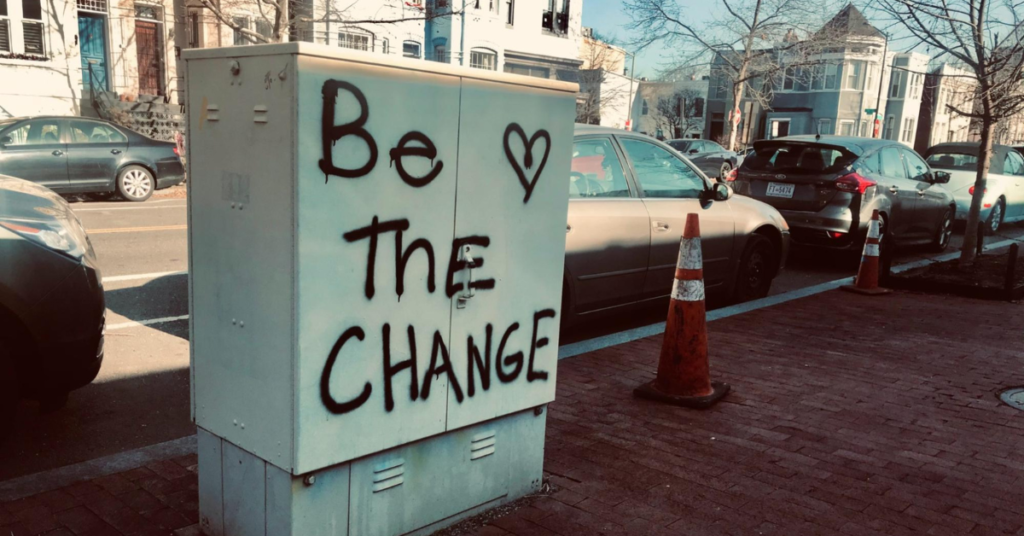The B Corp standards are at the heart of everything we do — from certifying businesses to impact management and to our broader policy and advocacy work worldwide. Alongside B Lab’s Theory of Change, which defines social, environmental, and governance best practices for business, B Corps use these standards to lead the way in creating a more inclusive, equitable, and regenerative economy.

It’s no secret that B Lab has received record numbers of applications in the past few years, with over 200,000 companies engaging with our standards through the B Impact Assessment, and over 25,000 using the SDG Action Manager. What started as a small group of passionate visionaries has now grown to a global network of almost 6,000 businesses, across 150 industries, employing more than 438,000 employees, and impacting millions of customers, clients, and stakeholders. Yet growth is not without its hurdles.
Over the past few months in particular, the verification and certification of several high profile businesses and larger multinationals joining the community has shone an even brighter spotlight on the movement’s standards for verification, certification and accountability.
While this scrutiny is not something the B Corp movement shies away from — in fact, we welcome it — it is a keen and constant reminder that the work of transforming the global economy comes with great responsibility and an imperative to continuously improve and evolve.
As the B Corp movement continues to grow, so too must the tools and strategies we use to effectively differentiate leading businesses and help all companies improve their impact.

Photo by David von Diemar on Unsplash
Balancing growth and rigour with meeting the challenges of our time
Throughout the past few years, B Lab and our global network of Sistema B organisations have been hard at work balancing the growth of this community with the need to maintain and uphold the rigour of our standards.
Rather than lowering our high standards in an effort to grow the movement’s impact, B Lab has committed to including more rigorous standards, which can be applied to all B Corps — regardless of size, geography, or industry, and reinforce the integrity of our standards. And on that path, we have reached an exciting crossroads.
Representing a marked evolution in what it means to be a B Corp, B Lab and our Global Network has embarked on a multi-year, multi-stakeholder project to review our standards.
Watch our video series on each of the Draft Standards

Photo by Luca Florio on Unsplash
A commitment to continuous improvement and evolution
In response to community and stakeholder feedback, B Lab announced a review of our standards in December 2020. Since that time, B Lab has been in the process of unpacking whether, and to what extent, more specific and mandatory standards on key topics could ensure that B Corp Certification continues to differentiate leading companies using business as a force for good.
Undoubtedly, both the pandemic, ongoing wars, increasing disasters, and the movement’s rapid growth presents a monumental opportunity to ask even bigger questions about how our current standards are meeting the needs of the moment, and how we can optimise and position the B Corp movement to lead a more equitable, just and regenerative future through the standards we uphold.

Redefining the non-negotiables of business for good
This review process marks the most significant evolution of the movement’s standards since it began back in 2006, seeking to redefine what good business looks like now and in the future.
The primary evolution of the standards is that we will be instituting a range of clear non-negotiables to become a B Corp. B Lab expects to launch the new standards using a phased approach that will extend to different groups of B Corps beginning in 2024.
In order to certify in the future, B Corps will need to meet specific requirements around the following 10 topics that are universally applicable and relevant towards achieving an inclusive, equitable, and regenerative economy:
- Purpose & Stakeholder Governance
- Worker Engagement
- Fair Wages
- Justice, Equity, Diversity & Inclusion
- Human Rights
- Climate Action
- Circularity & Environmental Stewardship
- Collective Action
- Impact Management
- Risk Standards
How is this different to the current standards?
Right now, to certify as a B Corp, a business must be awarded at least 80 points out of a possible 250+ under the B Impact Assessment or ‘BIA’ – a free tool to measure social and environmental impact.
A company completing the BIA is assessed according to five key impact areas: Community, Customers, Environment, Governance, and Workers, with questions customised according to a number of factors, including geography, size and industry. A company then earns points in each impact area, weighted according to which of the five a company puts the greatest emphasis on, and is given a ‘B Impact Score.’

Unpacking the ‘B Impact Score’ — what it is and why it matters↗
The way the standards are currently structured means that, although there are strict verification criteria, a company cannot receive a negative score because points are never deducted. Instead, points are only added for each positive impact a company has. This unique scoring methodology was designed to allow for each business’ distinctive positive characteristics to be recognised and celebrated.
While this approach has been tremendously valuable and impactful in the first 15 years of this movement, it has also demonstrated its limitations and challenges. And although significant improvements have been made to our certification standards since B Lab began in 2006, the core aspects of the B Impact Assessment have remained consistent.
It has become increasingly clear that our standards need to evolve in a more substantial way to achieve the urgent and dire need for systemic change to address the challenges before us: climate emergency and increasing frequency and ferocity of disaster; the urgent international movement for social justice, reduced inequalities, and racial equity; ongoing public health and economic fallout of the COVID-19 pandemic; economic inequity and poverty driven by profit, no matter the cost.
What can you expect from the new standards?
Representing a natural evolution of what it means to be a B Corp, the movement’s new standards will make certification more relevant than ever before for the urgent challenges we face today and tomorrow.

Photo by Colin Lloyd on Unsplash
It will also offer greater clarity on what it takes to be a B Corp and greater accessibility; a roadmap to focus on what matters most and galvanise impact across the globe; and a laserlike focus on the key issues facing people and the planet today and in the future.
This new proposed standards framework will replace the historic approach (whereby businesses must achieve an 80 point score in the BIA), moving away from a flexible approach to one where all B Corps must meet requirements on 10 specific topics that define leadership on social, governance, and environmental business impact.
Who needs to be involved in this process?
While the need to evolve the standards for B Corp Certification must mirror the urgency and gravity of our current context, the right kind of change takes time.
Evolution cannot happen in a knee-jerk or reactionary fashion if it is to usher in meaningful change. To evolve sustainably, we also need to listen carefully and take in feedback.
Purposeful stakeholder consultation and seeking the input of a large range of stakeholder voices in the conversation around the future of our economic system, both B Corp and non-B Corp alike, including specific consultation and feedback sessions with diverse groups to ensure the new standards are rigorous, practical, ambitious, and relevant.

Photo by Maria Thalassinou on Unsplash
Your voice matters. And the voices and input of B Corps and leaders from regions that are typically underrepresented in such processes, mainly Latin America & the Caribbean, Africa, and Asia, matter greatly.
First-round feedback on the draft standards is now closed.
Please note: there will be further opportunities to provide input into the development of these standards in 2023, followed by another consultation period before the new standards are expected to be launched using a phased approach beginning in 2024.

Watch our video series on each of the Draft Standards
Ultimately, the beating heart of this movement is our community of like-minded and purpose-driven businesses, and we look forward to working with you all to evolve our standards to better meet the challenges of our time.
For more information on evolving and adapting the B Corp Certification standards, please visit: https://www.bcorporation.net/en-us/standards/performance-requirements

